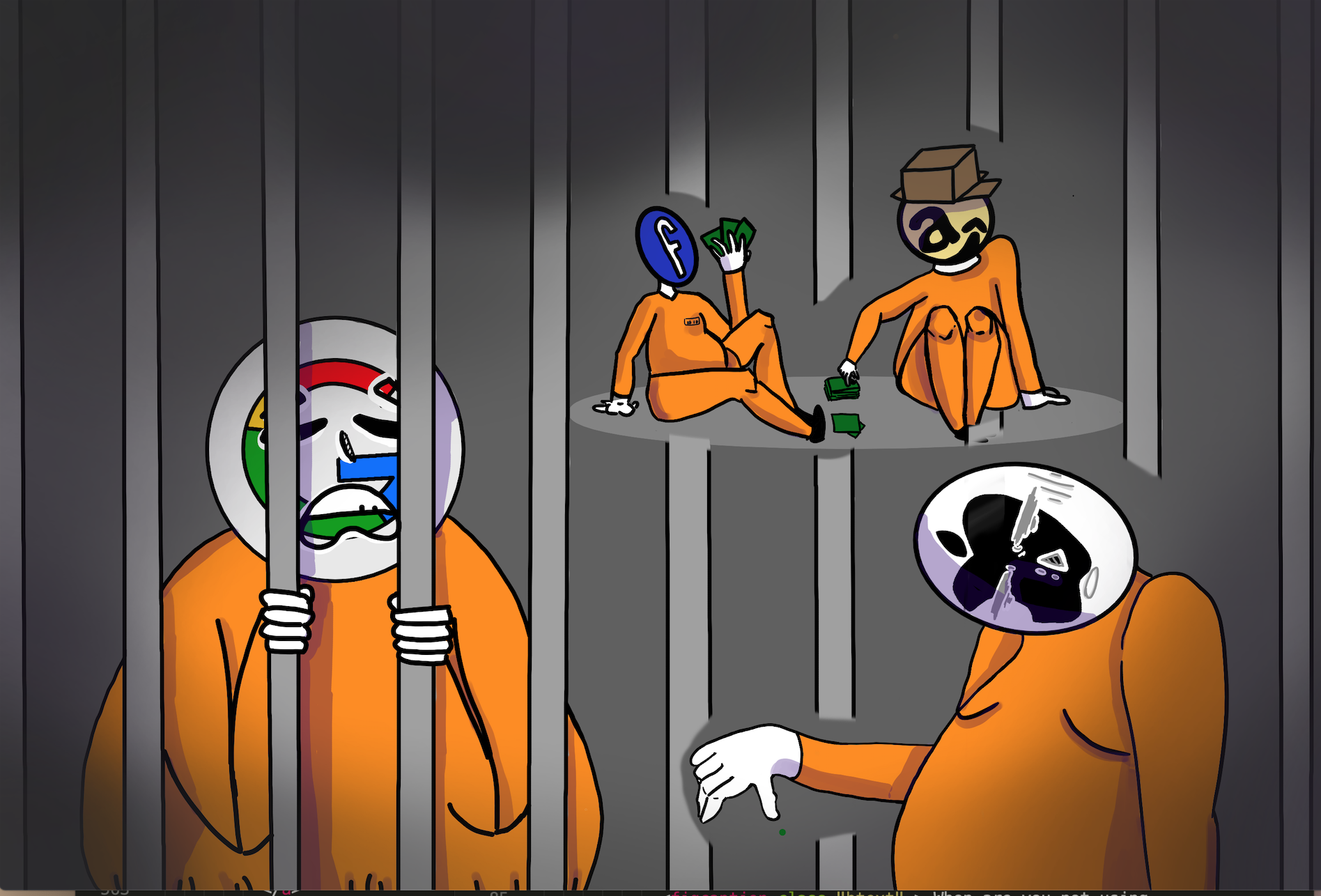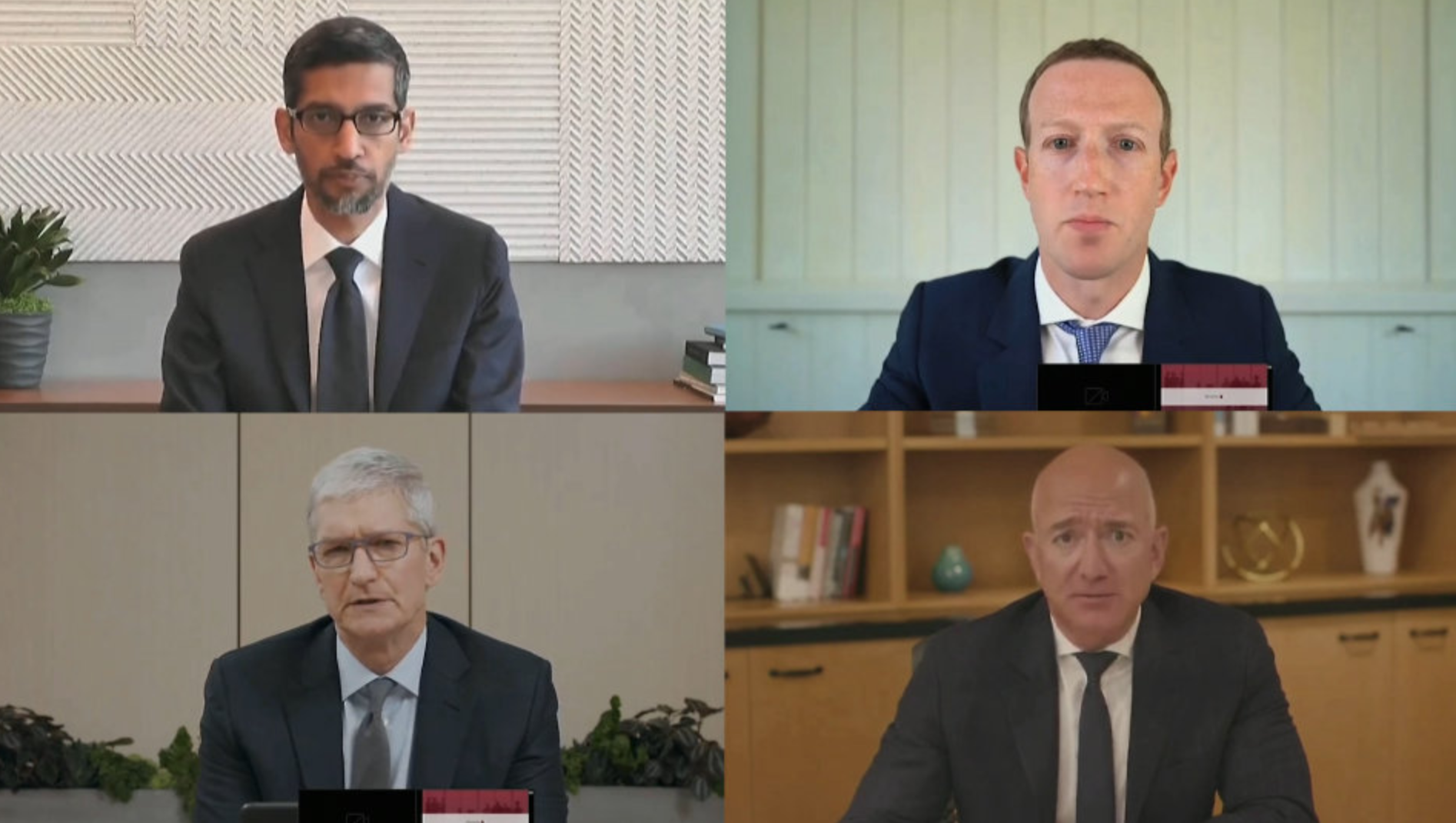

Arpitha Vinod [email protected]
Amanda [email protected]
When are you not using technology? The world around us has transformed quite radically within the past few years, and not a day goes by where you do not use either Google, Apple, Facebook, or Amazon and their services.
Reading this blog post? You probably are on the TeenHacksLI website you searched for via Google, on your Apple iPhone which you ordered the other day from Amazon because you saw people post about it on Facebook. It is astonishing how much these companies have control over--they have the power to control and know what we read, see, and do online.
Over time, these four companies have grown so much that they have less and less competitors, steering them towards the status of a monopoly . This has worried the United States government.
Will these companies become too powerful? Can they manipulate and censor information for their own good? After all, they are the tech experts and know their way around the new innovations, so are we putting too much trust and power in their hands?
Well, how far-reaching are these four companies anyway? For starters, Amazon controls nearly 38 percent of United States sales, which is 32 percent more than how much its nearest competitor Walmart controls. Facebook reaches about 2.6 billion people--about a third of the world’s population--making it the largest social network site. Apple’s app store is a doorway for developers to spread their mobile apps to its huge number of iPhone and iPad users. And lastly, Google processes 90% of all web searches around the world.
In total, the net worth of these companies are almost $5 trillion. As you can see, the big four have so much potential to influence its large number of users, and this is a concern for many government officials.

As a result, Congress has called CEOs Mark Zuckerberg of Facebook, Sundar Pichai of Google, Jeff Bezos of Amazon, and Tim Cook of Apple to testify in a historic hearing via video chat on July 29th on the topic of antitrust. Antitrust refers to the regulation of economic power with regards to trusts and monopolies. Representative David N. Cicilline, the chairman of the antitrust panel, called for this testimony as the culmination of a year long investigation on these big four to determine whether they have achieved their large status through anticompetitive ways.
Armed with millions of documents and private messages as witnesses, the Congress had many accusations so the big four took their time in defending their names and their companies. “Our founders would not bow before a king. Nor should we bow before the emperors of the online economy,” said Cicilline.
Accusations to Zuckerberg included his motive for buying Instagram, a major competitor of Facebook, as it went against antitrust laws to buy off possible competitive threats. To that he said “We compete hard. We compete fairly. We try to be the best.”
Bezos faced accusations that Amazon buys third party seller data to increase sales for Amazon’s own products. To that, Bezos admitted, “What I can tell you is we have a policy against using seller-specific data to aid our private label business. But I can’t guarantee you that policy has never been violated.”
Furthermore, Pichai faced accusations that Google steals content and threatens certain companies to put rivals at a disadvantage, and monitors web traffic to spot possible competitive threats. Pichai denied this and responded by mentioning how Google supports around 1.4 million small businesses.
Finally, Cook also faced accusations regarding how the Apple app store is handled and how Apple deals with apps that offer the same services as Apple apps, like Spotify and Apple music. In response, Cook said, “We do not retaliate or bully people,” he said. “It is strongly against our company culture.”
So what could this mean for the future of the tech industry? How did ideas that started in garages 20 years ago make their way to be the most powerful companies in the world? Should the government be regulating these tech companies for the good of the people? Who has that authority? As the technology industry continues to grow and thrive, there is a pressing need to obtain answers to these questions and impose regulations so that one area does not become too powerful.
